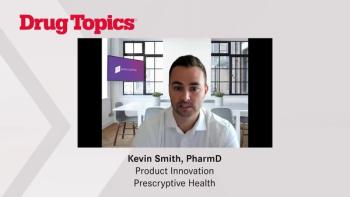
Will ATMs replace you?
Vending machines for medications may be an idea whose time has come, but they are creating a firestorm of controversy among pharmacists
"They are really no different than the pickup windows at drugstores," said Bradley Dayton, R.Ph., director of pharmacy operations for Ahold USA, the parent company of supermarkets Giant Food, Stop & Shop, and Tops Markets. His company is placing an automated drug kiosk in a pilot project in a Reston, Va., Giant store by the end of the year. It may also place a machine in Maryland soon, pending approval by the Maryland Board of Pharmacy. "These machines are only delivery machines, only for refills. They are not dispensing machines," he said.
Ahold has contracted with Asteres Inc. in Del Mar, Calif., one of two companies manufacturing the kiosks. According to Asteres founder and chief business officer Linda Pinney, the machines offer a safe and convenient way for customers to pick up their refills. "That's what it is about, convenience," she said. "A lot of grocery stores are open all day and night, but the pharmacy closes at five or six. People have very different needs when it comes to their work and home life schedules. We address that problem in pharmacy, just as it has been addressed in banking and other services."
Proponents say kiosks safe
Pinney said that contrary to the concerns of critics, the machines are designed to encourage consultation. They have a screen that asks consumers whether they have questions about their medications. If so-and if the pharmacy is open, of course-the consumer can speak directly to the pharmacist. "We do not replace pharmacists," said Pinney. "We are pharmacy clerks, definitely not pharmacists."
Justin Hai, ddn's APM project manager, believes the kiosks actually are safer than "the usual manner of having a busy clerk reach for an order on a shelf to hand to a customer. The biggest threat to public safety at the pharmacy level comes from human error, not machine error. Our systems have multiple levels of verification and safeguards, including bar-code scanners and personal customer codes and passwords to make sure the correct medication goes to the correct person."
"Prescriptions going to consumers is like money going to consumers," Pinney said. "The margin for error is zero."
Newsletter
Pharmacy practice is always changing. Stay ahead of the curve with the Drug Topics newsletter and get the latest drug information, industry trends, and patient care tips.























